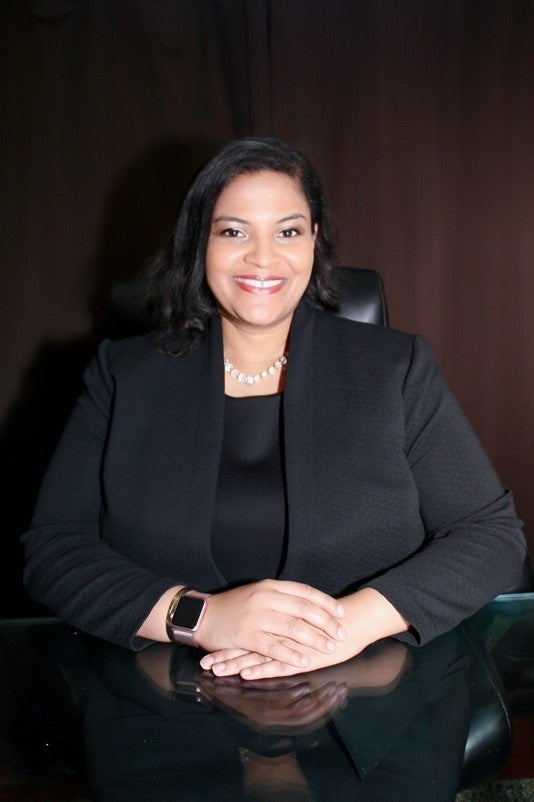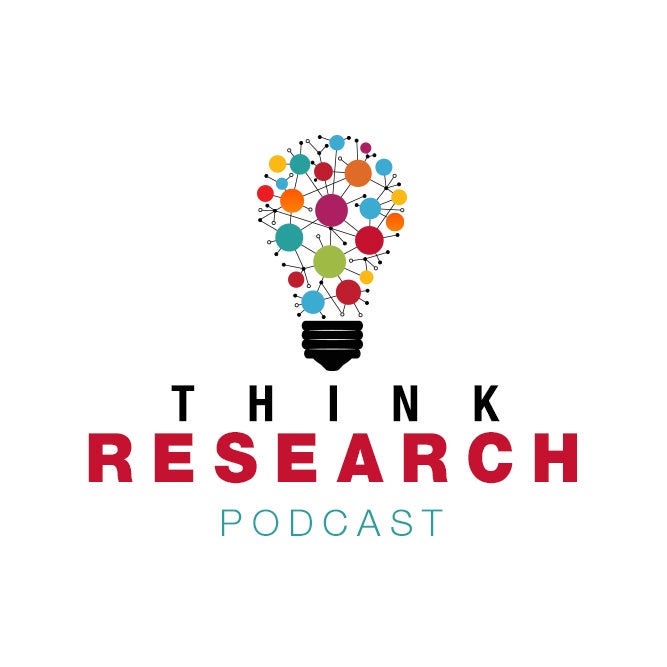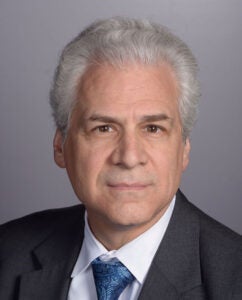For more information:
Email UsWe all are impacted by, and reap the benefits of, medical research discoveries. From over-the-counter drugs, to healthcare policies and educational interventions, many of these advancements are a result of incredible feats, decades of work, and sometimes serendipitous events. Join us as we sit down with Harvard researchers to discuss these captivating behind-the-scenes stories of research.
August 27, 2025
Updates from Harvard’s Football Players Health Study
Launched in 2014, the Football Players Health Study is the largest study of living former NFL players, with more than 4,800 participants. In this episode, Alicia Whittington, PhD, assistant director of engagement and health equity research, joins us to discuss her work on the study, including a family initiative and resources for former NFL players.

Alicia J. Whittington, PhD, MPH, is the assistant director of engagement and health equity research for the Football Players Health Study at Harvard University, a comprehensive research program dedicated to addressing the health and wellbeing of former National Football League (NFL) players. She is also co-lead of a new research initiative, Family Experiences Managing Football Lives, also known as FEM-FL. Whittington has several years of research experience, including her role as project director for a global research consortium, and was previously a healthcare consultant. She received a PhD in health systems management from Tulane University, where she focused on health disparities, health outcomes, and sports injuries. She completed her dissertation research on “Concussion Education and Perceptions of Injury Risk among High School Football Players.” Whittington additionally received her master of public health degree in chronic disease epidemiology from Yale University, and a bachelor of arts in public health from Wellesley College.
July 25, 2025
The NFL & Community-Engaged Research
How does growing up with two NFL football players spark a career in research? In this re-airing of our May 2022 interview with Alicia Whittington, PhD, of the Football Players Health Study, Whittington shares how her upbringing helped lead her to her current work in health equity and community-engaged research.
Read Transcript
Alicia J. Whittington, PhD, MPH, is the assistant director of engagement and health equity research for the Football Players Health Study at Harvard University, a comprehensive research program dedicated to addressing the health and wellbeing of former National Football League (NFL) players. She is also co-lead of a new research initiative, Family Experiences Managing Football Lives, also known as FEM-FL. Whittington has several years of research experience, including her role as project director for a global research consortium, and was previously a healthcare consultant. She received a PhD in health systems management from Tulane University, where she focused on health disparities, health outcomes, and sports injuries. She completed her dissertation research on “Concussion Education and Perceptions of Injury Risk among High School Football Players.” Whittington additionally received her master of public health degree in chronic disease epidemiology from Yale University, and a bachelor of arts in public health from Wellesley College.
June 25, 2025
Investigating Brain Injuries
In this follow up to our 2019 interview, Alex Lin, PhD, of Brigham and Women’s Hospital shares updates on his research investigating brain injuries. In this episode, Lin discusses his research over the past six years, including his work studying the impact of hormones on the brain and gender differences in concussion.

Alexander Lin, PhD, is the director of the Center for Clinical Spectroscopy in the Department of Radiology at Brigham and Women’s Hospital and associate professor of radiology at Harvard Medical School (HMS). He is also an investigator at the Psychiatric Neuroimaging Laboratory at Brigham and Women’s Hospital and is affiliated with VA Boston Healthcare, Massachusetts General Hospital, and Boston Children’s Hospital. Additionally, he is co-founder of BrainSpec, Inc., an MRS software start-up which recently was awarded FDA Breatkhrough Device designation. Lin’s research focuses on translating magnetic resonance spectroscopy to the clinic. He was awarded the ESMRB Young Investigator’s Award in 2003 for his work in 13C spectroscopy in Alzheimer’s disease and more recently, he was awarded the Young Mentor Award at HMS. Lin is a graduate of the California Institute of Technology, where he completed his master’s degree in bioengineering and his doctoral degree in biochemistry and molecular biophysics.
May 21, 2025
Innovative Imaging: Brain Injury Research
In case you missed it: Back in 2019, we interviewed Alex Lin, PhD, director of the Center for Clinical Spectroscopy at Brigham and Women’s Hospital. In this episode, he discusses his research investigating traumatic brain injuries and how he measures brain chemistry using magnetic resonance spectroscopy.

Alexander Lin, PhD, is the director of the Center for Clinical Spectroscopy in the Department of Radiology at Brigham and Women’s Hospital and associate professor of radiology at Harvard Medical School (HMS). He is also an investigator at the Psychiatric Neuroimaging Laboratory at Brigham and Women’s Hospital and is affiliated with VA Boston Healthcare, Massachusetts General Hospital, and Boston Children’s Hospital. Additionally, he is co-founder of BrainSpec, Inc., an MRS software start-up which recently was awarded FDA Breatkhrough Device designation. Lin’s research focuses on translating magnetic resonance spectroscopy to the clinic. He was awarded the ESMRB Young Investigator’s Award in 2003 for his work in 13C spectroscopy in Alzheimer’s disease and more recently, he was awarded the Young Mentor Award at HMS. Lin is a graduate of the California Institute of Technology, where he completed his master’s degree in bioengineering and his doctoral degree in biochemistry and molecular biophysics.
April 9, 2025
Advancing Research on Bioadhesive Materials
Bioadhesive materials have the potential to support patient care in a number of ways, from wound healing to repairing the dura to assisting with leaks of cerebral spinal fluid. In this follow-up to our 2022 interview, Ben Freedman, PhD, of Beth Israel Deaconess Medical Center, shares technological advancements and discoveries made by his team over the past three years.

Benjamin Freedman, PhD, is an assistant professor at Harvard Medical School and co-founder of Limax Biosciences. His research, which has been published in more than 65 journal articles, focuses on the design and synthesis of biomaterials for applications in orthopedic surgery, cardiovascular surgery, and neurosurgery. Currently, Freedman and his teams are working to translate the materials they’ve developed to improve tissue healing within and outside of the body. Freedman received his PhD in bioengineering from the University of Pennsylvania and his BS in biomedical engineering from the University of Rochester.
March 19, 2025
Engineering Adhesive Biomaterials to Improve Healing
In case you missed it: Adhesive biomaterials are used in orthopedic and cardiovascular surgery, as well as neurosurgery, to improve patient care. In this episode from 2022, Ben Freedman, PhD, of the Wyss Institute at Harvard University, discusses his research on the design and synthesis of these biomaterials.

Benjamin Freedman, PhD, is an assistant professor at Harvard Medical School and co-founder of Limax Biosciences. His research, which has been published in more than 65 journal articles, focuses on the design and synthesis of biomaterials for applications in orthopedic surgery, cardiovascular surgery, and neurosurgery. Currently, Freedman and his teams are working to translate the materials they’ve developed to improve tissue healing within and outside of the body. Freedman received his PhD in bioengineering from the University of Pennsylvania and his BS in biomedical engineering from the University of Rochester.
December 18, 2024
2024 In Review: Part One

In part one of this two-part special, we take a look back at some of our interviews from 2024. In this episode, hear from Jason Vassy, MD, MPH, of Veterans Affairs (VA) Boston Healthcare System, on how patient DNA might be used to improve healthcare and prevent disease. Also hear from Mayank Chugh, PhD, of William & Mary, as he shares how social inequity dimensions such as race, gender, socioeconomic status, and citizenship impact STEM education; and Meg Simione, PhD, of Massachusetts General Hospital, as she discusses her research examining the determinants and impacts of pediatric disorders and ways to improve access to care.
November 20, 2024
Advancing Translational Science
“Translational science is really general principles for how we take scientific discoveries and basic scientific information and translate that into implementable, viable, feasible health solutions for both the patient and the provider to be able to utilize,” says Michael Kurilla, MD, PhD, of the National Center for Advancing Translational Sciences (NCATS).
In this episode, Kurilla discusses his work as the director of the Division of Clinical Innovation at NCATS, and the role translational research and science plays in healthcare. Harvard Catalyst is a member of the NCATS Clinical and Translational Science Awards (CTSA) Program.

Michael Kurilla, MD, PhD, is the director of the Division of Clinical Innovation at the National Center for Advancing Translational Sciences (NCATS). In this capacity, he oversees the Clinical and Translational Science Awards (CTSA) Program, which supports innovative solutions to advance the efficiency, quality, and impact of translational science, with the ultimate goal of getting more treatments to more patients quickly. Prior to joining NCATS, Kurilla served as the director of the Office of Biodefense Research Resources and Translational Research within the National Institute of Allergy and Infectious Diseases (NIAID), where he focused on translational efforts toward infectious disease product development, including vaccines, therapeutics, and diagnostics, with emphasis on biodefense and emerging infectious disease threats. Kurilla received his MD and his PhD in microbiology and immunology from Duke University, and his BS in chemistry from the California Institute of Technology. He was a postdoctoral research fellow at Harvard Medical School and completed a residency in pathology at Brigham and Women’s Hospital.

